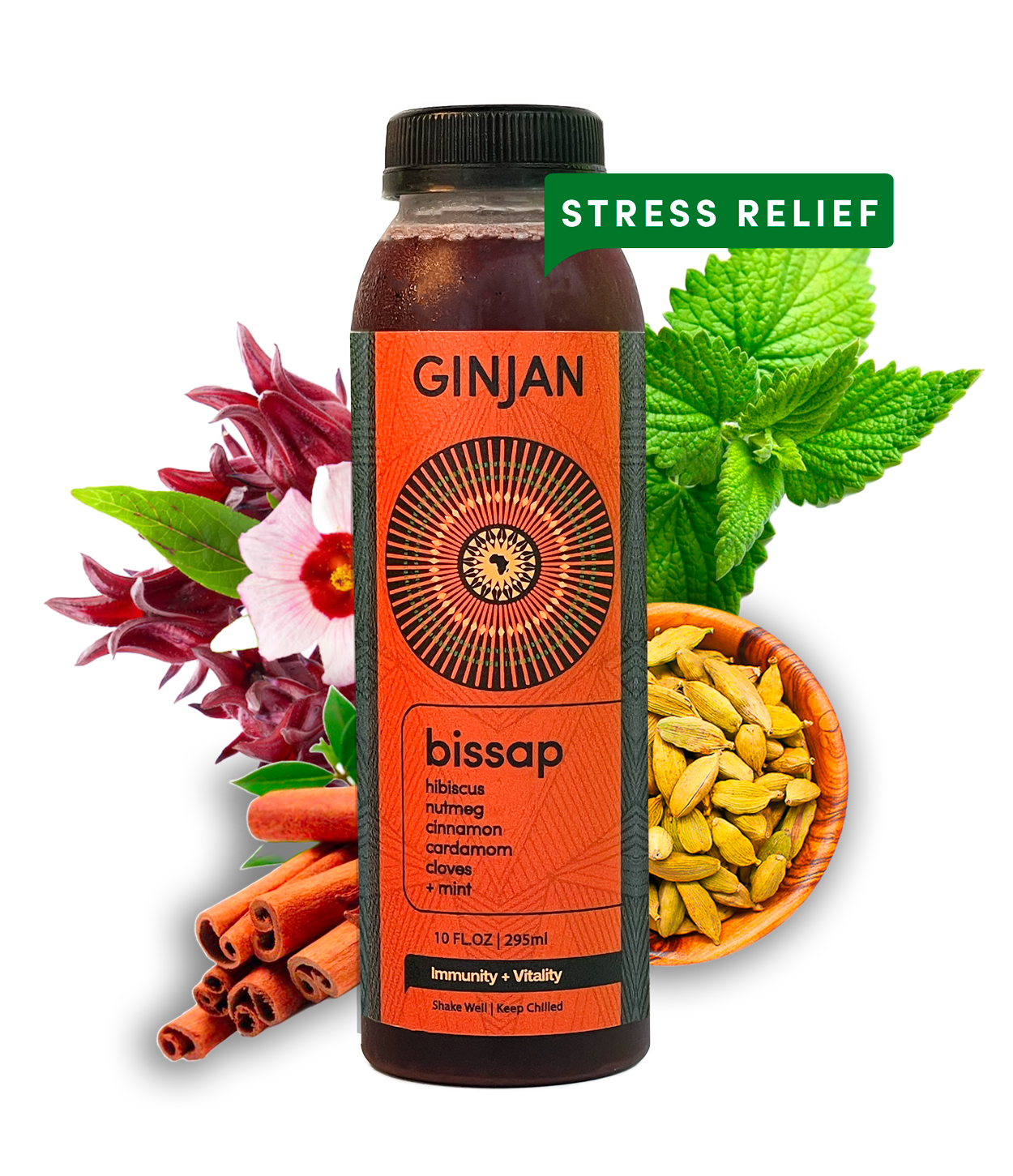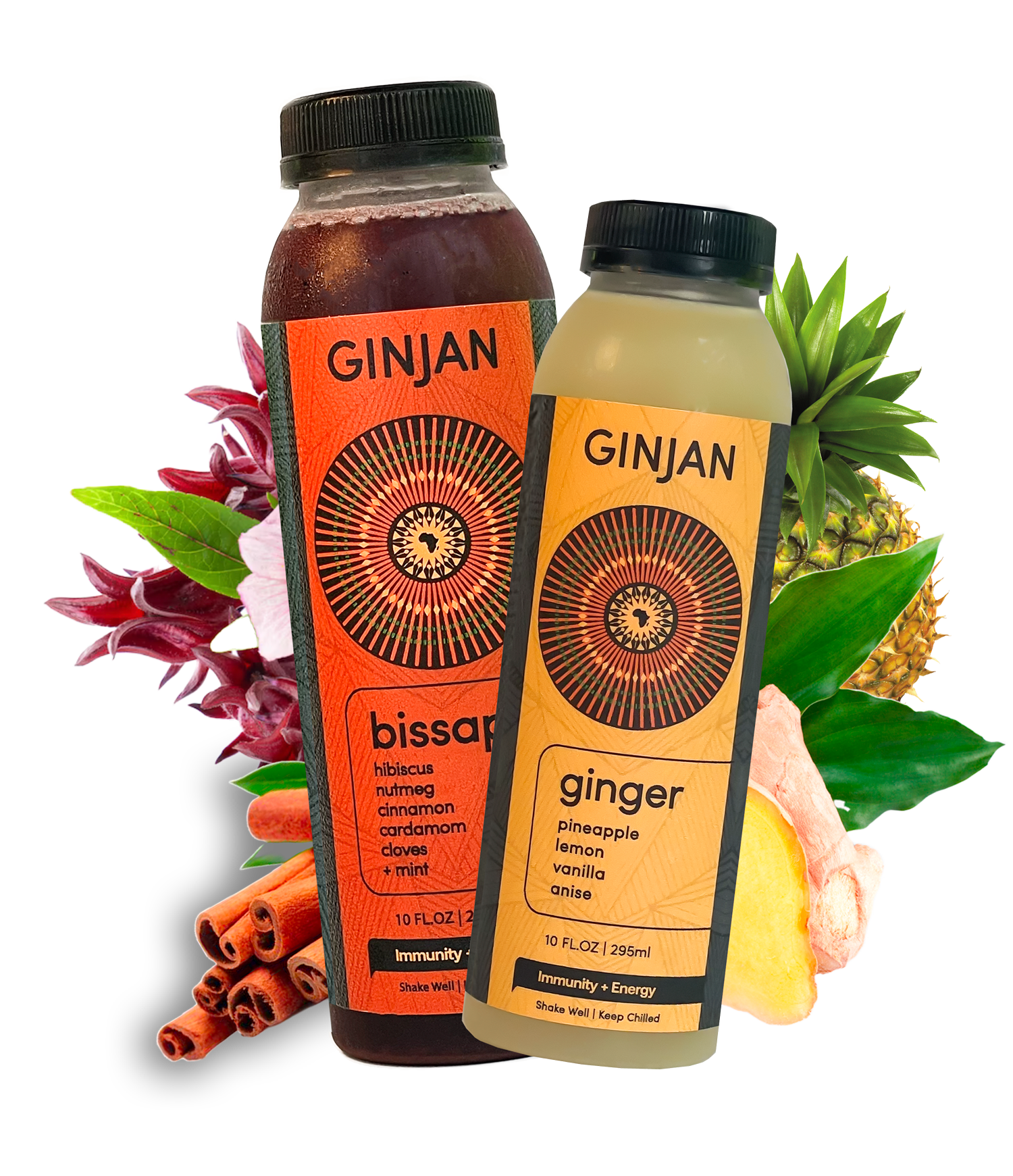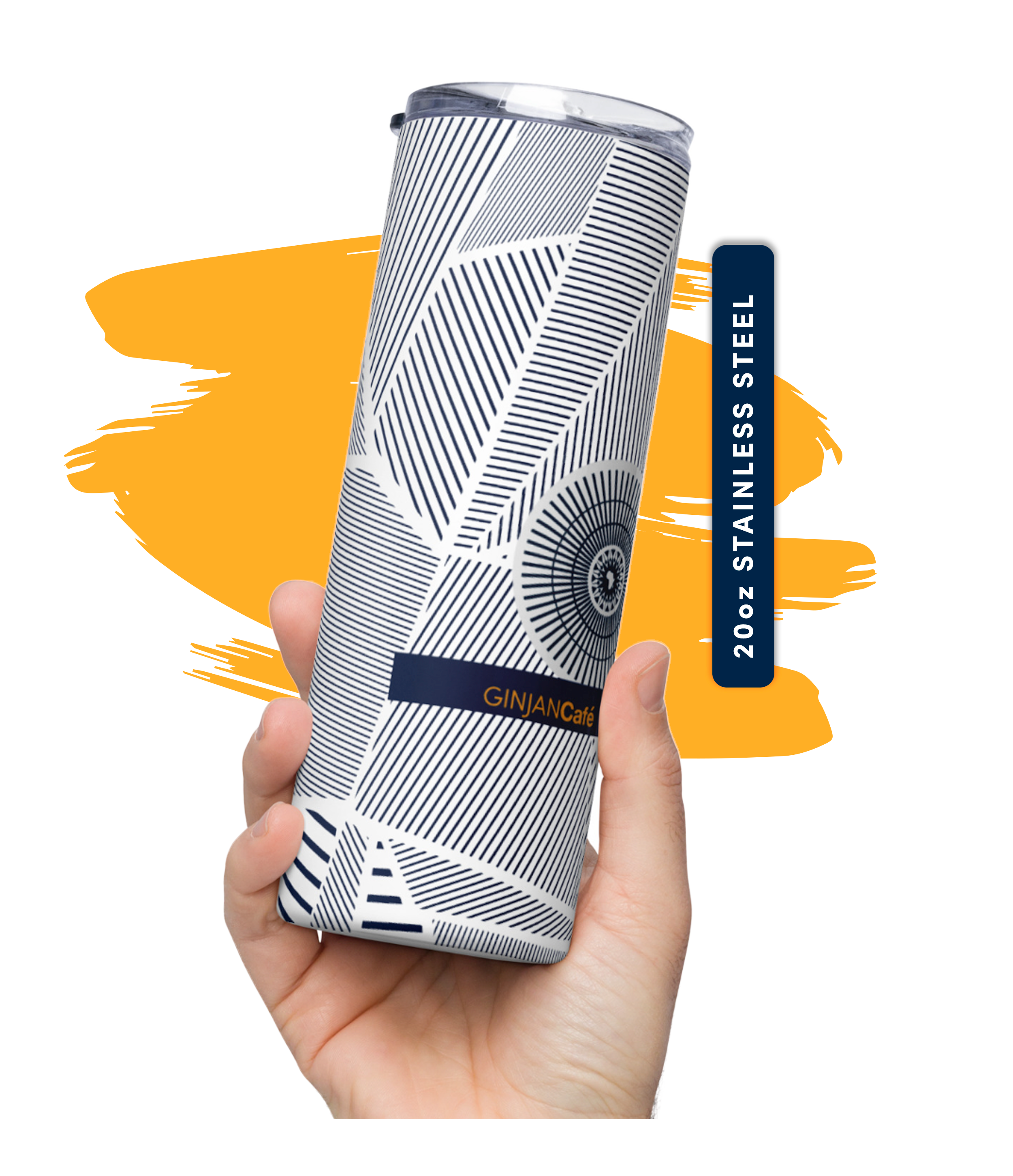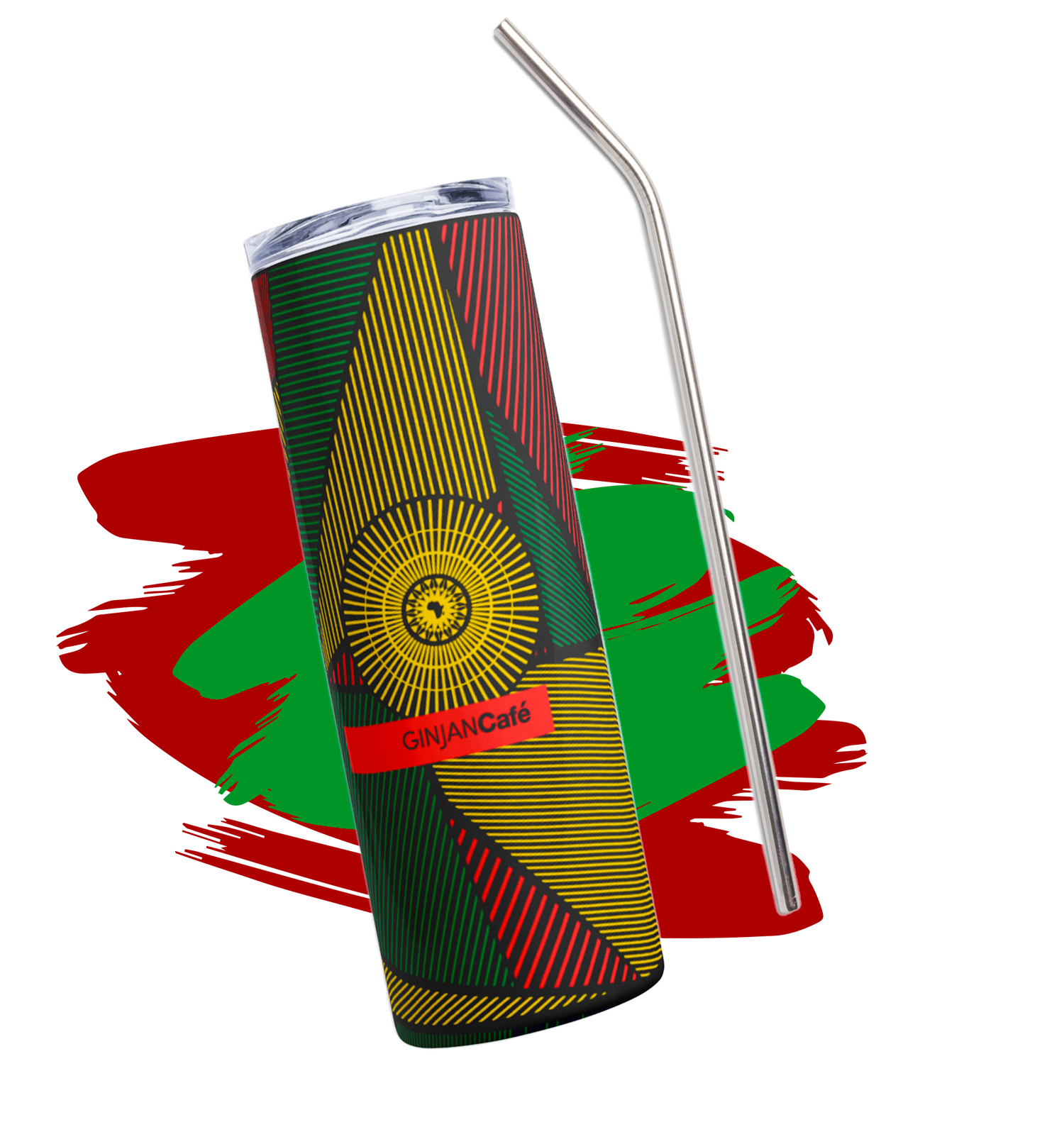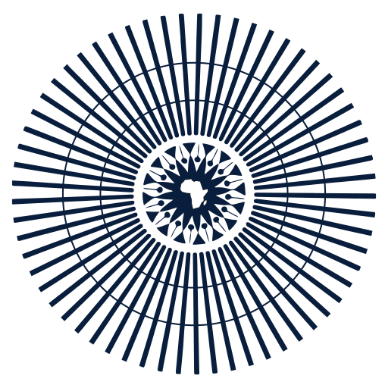Humans of New York: The Ginjan Brothers by Brandon Stanton
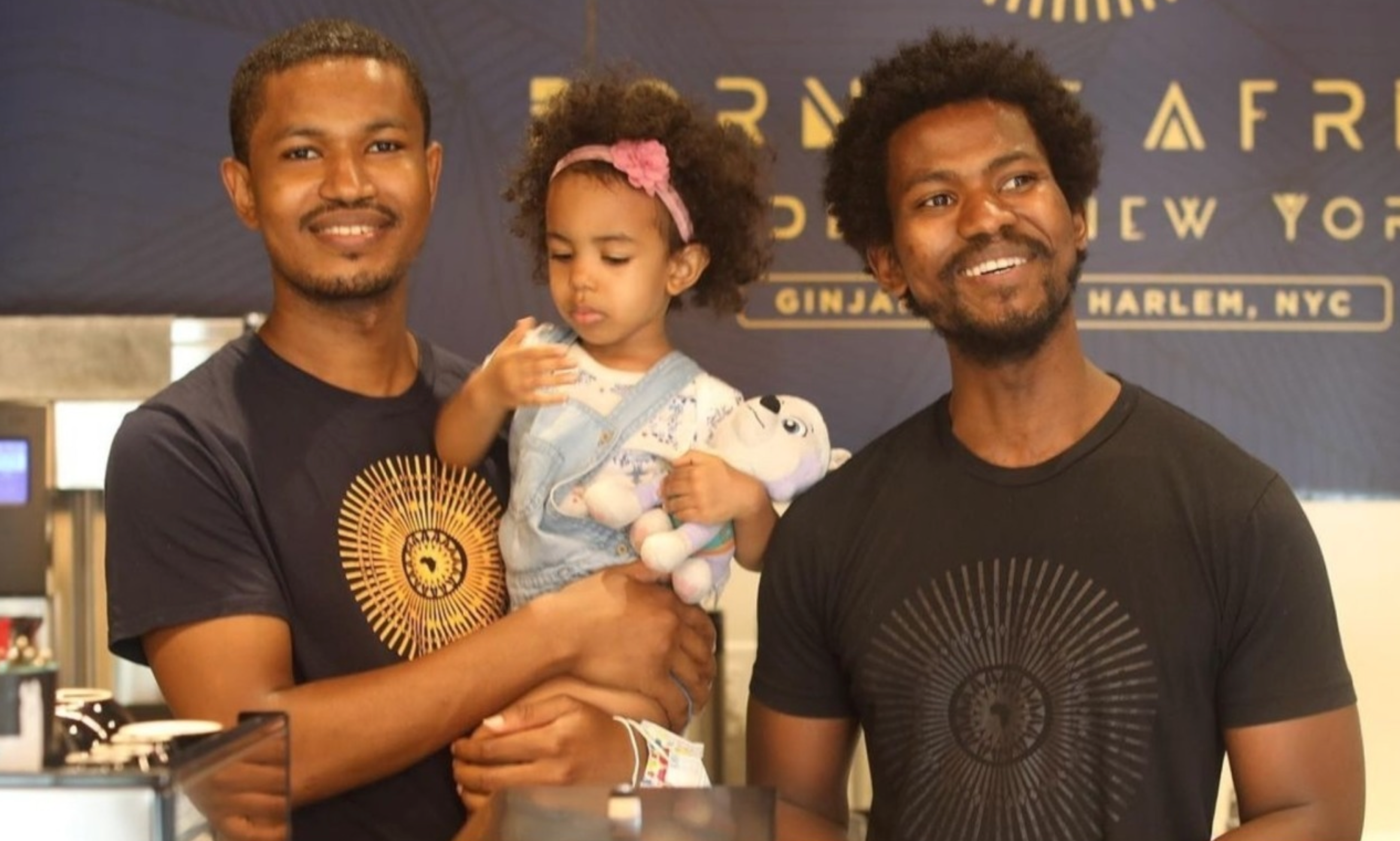
“It’s one of the most painful things you can imagine. It would feel like she was being stabbed in the joints with needles. On days when she was too sick to go to school, I’d stay home with her. I’d lie next to her on the floor, and she’d be in so much pain that she’d be asking for a knife to end her own life. I’d feel so helpless. She was just a child. I’d do anything to take away her pain. But I was just a child too, so what could I do? Fatou was the only girl in our family. She was our princess. She’d ride around on our backs like a horse, and we couldn’t stop until she said so. But we never minded. Whatever Fatou wanted, she got. For her entire life she’d been very ill with sickle-cell anemia.
There isn’t a cure for the disease, so it put our parents under a great deal of strain. We weren’t a wealthy family. Both my parents had to work to pay her hospital bills. And the situation in our country was not good. In Guinea there has always been a lot of ethnic tension. Growing up there were a lot of riots, and a lot of shooting. The streets could be so dangerous that our parents would make us stay inside for days at a time. When I turned thirteen there was a particularly heated election. Politicians were stirring up anger between the tribes, and violence was spilling into the streets. My father is a very educated man. And he happens to be an amazing writer, so he started writing speeches for some of the more moderate candidates. During this time he sent me to America, to visit with some friends that he’d met while studying there. It was supposed to be a short trip, just a few weeks, until things cooled down. But my father called me a week before I was supposed to leave. He’d heard a rumor that he was going to be arrested. He’d decided to leave the country for a few months. And he thought it would be safest if I didn’t come home. When I hung up the phone, I remember feeling nervous. But I was also excited. I thought: ‘This is the greatest country on the planet.
There’s so much opportunity here. I’m going to study, and find a good job. And I’ll finally be able to help my sister.’ I had no idea what was in front of me. I was just a kid.”
“My father arranged for me to stay with a family in Atlanta while I attended high school. They were distant acquaintances. And they must have thought my family had means, because they kept asking my father for money. When he couldn’t send it, they treated me horribly. I was always getting punished. I was given one meal a day. After school I had to come straight home, because I was responsible for all the housework. I used to sit alone in my room and imagine having conversations with my family. It’s the only way I survived the loneliness of those first few years. After high school I couldn’t afford to go to college, so I moved to New York City to look for work. I shared a one- bedroom apartment with five Guinean cab drivers. We put a partition down the middle of the living room, and laid out mattresses on the floor. Some of us worked the day shift. Some of us worked the night shift. The only place that would hire me was a furniture store in Brooklyn. And since I was undocumented, the owner would only pay me $2 an hour. It wasn’t even enough to eat. I picked up a second job at night, burning and packaging bootleg CD’s in a Bronx basement. I got $20 for a box of 200. It was too expensive to call back to Guinea, so my only connection to home was a letter that arrived each month. I’d sit on my mattress and study every word. The paper would usually be divided into thirds; there’d be a note from my parents, a note from my brother Rahim, and a note from Fatou. Fatou was only twelve years old, but she was already the most clever in our family. Her notes would be full of ideas. There were no places for children to play in our town. And it always bothered her. So she’d write about playgrounds and gardens that she wanted to build. She even designed her own theme park, with a roller coaster. In one letter she told me that she’d decided to become a pediatrician. So much of her life had been around doctors, it’s really all she knew. In Guinea most people with her disease passed away in their twenties. But the treatments were better in the United States.
People were living into their fifties. If I could somehow find a way to bring her here, she’d have a real chance.”
“I never told my family about my struggles. I knew they depended on the money I sent home. And if they knew my true situation—they’d never allow me to stay. So I shielded them. I only told them positive things. That’s probably why they sent my younger brother Rahim. He was fifteen years old. And they just dropped him on me. During our childhood in Guinea, Rahim had been like my shadow. He was closest to me in age, and he followed me everywhere. He’d come to my soccer games and beg to be on my team. He was chubbier, and less athletic. But he was determined. He wouldn’t leave until we let him play. I wasn’t ready for him when he arrived in New York. I was barely surviving myself. But he was the first family member I’d seen in years, so of course I was excited to see him. He was distant at first. Almost as if he was studying me, to see if I was the same brother. But after a few days we were talking about everything and nothing. I did what I could for him. I bought him a lot of McDonald's. I encouraged him to speak better English. One day I made him walk into every business on Fordham Rd, asking for a job. I knew that nobody would hire him. But I wanted him to understand how hard things would be. His timing was not good. This was right after 9/11, and we were immigrants from a Muslim country. My name was Mohammed. His name was Ibrahim. One night I sat him down, and told him: ‘This is not the country for you.’ We had heard that things were much easier in Canada. You could get housing, and education. Especially if you were a teenager. The last thing I wanted to do was send Rahim away from me. Without him I was all alone. But I thought it was the best decision, for all of us. The agent at the bus station didn’t want to sell us a ticket, because Rahim didn’t have ID. But he went to the back office and returned with a ticket. We should have known then. But we were naïve. We were just teenagers. I took one final picture before Rahim got on the bus. It still breaks my heart to look at it. He’s clutching an Atlanta Braves pillow, the only thing I had to give him. And he’s got this terrified look on his face. It’s a look of: ‘I don’t want to do this.’”

“The bus was stopped twenty minutes south of Canada. The agents were looking for Rahim when they boarded. When he arrived at the detention center, he was given one phone call. And there was nobody to call but me. I was devastated. I felt responsible for what happened. I could never tell my mother. But I made a call to my father, and he broke down in tears. ‘I threw away my son,’ he said. There was nothing I could do. I was seventeen. I had no money. And I was undocumented myself. I called everyone we knew in America, all my father’s friends, even random people. But nobody would vouch for my brother. Rahim was held for over twelve months in juvenile detention. In the beginning I could tell that he was extremely scared. He kept saying: ‘Bro, you’ve got to get me out. There are real criminals in here.’ But after a few weeks he began to make peace with the situation. He spent all his time in the prison library, reading as many books as he could. He taught himself to type faster. His English became better than mine.
Every night he got a single phone call at 5 pm. No matter what was going on in my life, I made sure I was by the phone. Those conversations were important for both of us. I’d do everything I could to calm him down. To keep him sane, and entertained. We spent a lot of time talking about Africa, and our childhood. We talked about our family. We talked about how one day we’d bring Fatou here for treatment, when we were more stable. When he got out of prison, and both of us were legal. We talked about businesses we could start together. Most of them were teenage ideas: music stores, and clothing stores. The last thing I was thinking about was actually starting a business. I could barely afford to eat at that time. My only goal was to keep Rahim positive. To give him something to look forward to, and keep his mind out of the thing. But you have to be careful with Rahim. He’s the most determined person I know. When he sets his mind to something, watch out. He began working out in prison. When he first went in he was 230 lbs. But he exercised every single day. And by the time he came out, he was down to 160. He wasn’t my chubby little brother anymore.”
“When Rahim got out of prison he was taken in by a foster family in Michigan. They didn’t have much, but they gave him the basics. And that’s all he needed. He was able to graduate from high school. He enrolled in Michigan State University. Some kind law students even helped with his asylum application. Rahim’s life began to move forward much faster than mine. But I was never envious. It’s what I wanted from the very beginning. For something positive to happen to us, as a family. Back in New York I was doing everything I could to survive: washing dishes, washing cars, working security. I even sold knock-off bags on the sidewalk. It took me four years to finish two years of community college. I felt every second of those years. I tried not to think of minutes, or hours, or days. It was too painful. I tried to live in this imaginary world, where time was standing still. Where my parents weren’t getting older. And my sister wasn’t getting sicker. It’s the only way I could keep the pressure from becoming too much. Every week I’d talk to Fatou on the phone. She’d never tell me when she was feeling ill. She’d only say when she was feeling better. She’d say: ‘I missed school last month, but I’m feeling much better.’ She was a teenager now. She wanted to know everything about my life. She’d tease me about getting married. And she’d ask me to buy her things. For months she pleaded with me to send her a pink Razor flip phone. But more than anything else she wanted to join me here. She wanted to know if I’d gotten a lawyer. And when my court dates were. And how long it would be before I could sponsor her. By 2009 my green card application was almost finished. It had taken over ten years, but I was finally getting close to my goals. I was working as a management trainee at Enterprise Rent-a-Car. Before long I’d be making a real salary. I’d be able to help Fatou with her treatments. I could take some of the strain off my father. But one night when I was finishing my shift, I got a voicemail on my phone. Oh my God, it traumatized me. For three years I stopped listening to voicemails. We all knew it was coming, but I wasn’t ready. I thought I had more time.”
“My green card was approved a few weeks after Fatou died. It seemed like a cruel joke. I was almost angry about it. For a month I didn’t get out of bed. My manager kept calling. My friends kept knocking on the door, but I didn’t care. Her death finally broke me. Nothing mattered anymore. I knew there was only one way I could survive this. I borrowed all the money I could, and took my first trip back to Guinea in ten years. My entire family was waiting for me at the airport: my parents, my brothers, my aunts and uncles. Everyone looked so much older. My youngest brother had been born after I left, and he was all grown up. I met him for the first time. Over the next few weeks I visited all my old neighbors, and all my old friends. Everyone wanted to talk about Fatou. There were so many stories. She’d touched so many people with her kindness. A few weeks before she passed, Fatou had opened up her closet. She invited the neighborhood girls to take whatever they wanted. She only kept two dresses for herself. When I left she’d been this little girl. But she’d grown into this amazing woman. And hearing these stories allowed me to imagine that I’d been part of her life. Toward the end of the trip we went to visit her grave. I didn’t want to do it. It’s the last fucking place I wanted to see her. But I had to. So that when I think of her, I can know where she is. It wasn’t like you’d imagine. It wasn’t this beautiful cemetery, where everyone has their own special place. In our way of burial, there are no headstones. And it bothered me a little. That there was nothing there. It just reminded me of how helpless we are. Rahim and I were in America fighting as hard as we could. But we ran out of time. We could have just stayed home. At the end of the trip, I didn’t want to leave. Nobody wants to leave their home. But I’d already sacrificed so much. And my family had only grown more dependent on me. But it was a healing trip. It reminded me why I was trying. I still had my father. I still had my mother, and my siblings. I still had my aunts, and my uncles, and my cousins. My sister was gone, but there were so many people left. There was still so much to fight for.”
“Rahim and I finished our college degrees, but things didn’t get any easier. We were still driving cabs and working in restaurants. We were filling out hundreds of applications, writing personal letters, showing up at companies. But we couldn’t even get an interview. It felt like we’d done everything right. But nothing was happening. Then in 2012 our father passed away. He’d been battling cancer for years, but the end came very suddenly. I could only afford one plane ticket, so I flew Rahim to his bedside. It was the first time they’d seen each other in ten years. They had 24 hours together. We’d been dreaming of helping our father for our entire lives, but now he was gone too. Rahim and I knew we couldn’t afford to wait anymore. We had to create our own opportunities. One morning we sat down at a coffee shop, and began making a list of business ideas. Most of our first ideas involved technology. But the barriers were too high. We had to think of something simpler. I think it was Rahim who first thought of the ginger drink. This drink had been a huge part of our childhood back in Guinea. It was served at every holiday, and it was always the first thing to go. Every family has its own recipe, with different ingredients—but there’s always ginger. In our language it’s called ‘Niamakou Leiidi,’ which means ‘pepper of the earth.’ It’s the first thing you taste, and the last thing you taste.
Rahim and I agreed that it was the thing we missed most about home. We’d searched everywhere in New York, but it wasn’t on any shelves. So we thought: ‘This is it. This is our entry point.’ Our mother was shocked when we called to ask for her recipe. She said: ‘You finally finished your education. And you’re making Ginger drinks?’ But we told her: ‘No, Mom. It’s not like that. We’re going to make a lot of it. We’re going to sell millions of bottles.’ We spent all our free time making juice. We official launched at a festival in Harlem. We rented a booth, and after five hours we’d completely sold out. Everyone loved it. We thought: ‘This is it.’ We named our company Ginjan. And we were convinced that in five years we’d have the most recognizable African brand in the US.”
“When we started the company we made a promise to ourselves: no decisions out of desperation. That was rule number one. We had no money, no connections, and no leverage. We knew how easy it would be for someone to take advantage of us. One man offered just $10,000 for 50% of the company. We needed capital badly, but we turned it down. We would build Ginjan on our terms. Even if we were starving. My brother and I are a bit like the turtle and the hare. I like to look at things from all angles. Maybe I’m a little slower, and a little wiser. But Rahim is brilliant and full of energy. He took charge of all the operations. He learned about a new process called high-pressure processing. He found us space in a commercial kitchen. He emailed factory after factory to inquire about bottling. Both of us were working full-time jobs, so we were always exhausted. And we were funding the business with our paychecks, so every week we were on the verge of going bankrupt. But at least we had a chance. It was like: ‘Oh my God, after all this struggle, our lives are finally moving forward. We’re honoring our sister. We’re honoring our father.’ It was a happy time. I met the woman who would later become my wife. She worked in finance, but she didn’t mind that I drove a yellow cab. She liked me for who I was. And she saw my potential. Rahim and I weren’t making money yet, but we began to experience those small highs that entrepreneurs get. We got included in a lot of ‘shop local’ programs. We received some orders from mom-and-pop shops. The one thing we still needed more than anything else was investment, but everyone kept saying the same thing: ‘It’s too niche.’ Or ‘it’s too ethnic.’ In 2017 we were invited to Harvard for something called the African Business Conference. We were given ten minutes to pitch to a group of venture capitalists. The presentation went well, and afterwards we were approached by a young Indian guy. He explained that his family owned a plastics company. They’d made a fortune in Africa. And they would be interested in making a sizable investment in Ginjan. But first we would need to travel to Hong Kong, and pitch the company to his father.”
“We couldn’t believe our luck. It was the happiest thing that had happened to us in a long time. They paid for all our flights. They booked us a room in a fancy hotel. And the night we arrived in Hong Kong, they took us to dinner at a Michelin star restaurant. At the table there was a whole team of advisors, from several different countries. It felt like something big was about to happen. Rahim and I spent the night practicing our pitch, and in the morning we travelled to the father’s office. It was on the top floor of a tower. We made our presentation. An Ivy League analyst questioned us about the financials. The father was clearly the one in charge, but they’d also flown in one of their uncles from Silicon Valley. He was dressed like a yogi. I think he taught billionaires how to meditate, or something. And after our presentation he was the first one to speak. He said: ‘Do you believe in numerology?’ We weren’t sure how to answer. But then he continued: ‘Nine is a very lucky number,’ he said. ‘And 3 + 5 + 1 = 9. So we’d like to offer you $351,000, for one-third of the company.’ It was much less than we’d hoped, but at least we had an offer. Unfortunately he wasn’t finished. He said: ‘If the business fails, we want all our money back. With 9 percent interest.’ Rahim and I looked at each other across the room. We were completely out of money. Our credit cards were maxed out. We were more beaten down than we’d ever been before. But we knew what the answer would be. Rule number one: no decisions out of desperation. After that trip we gave up on finding investors. We knew our only chance was to raise money from people who loved the drink, so we decided to hold an equity crowdfunding campaign. We sent the link to everyone on our contact list. A few of our friends wrote small checks, but most of the investments came from random people.
These were people we’d met along the way. Maybe they’d passed our booth at a festival, and met these two brothers, selling this weird drink. And they decided to give it a try. And they loved it. So they followed along with our story. In the end we raised $182,450 from 261 different people. It was just enough to keep us going.”
“With the money from the crowdfunding campaign we decided to open a café. It had always been a dream of ours, to open our own place. But we thought it would be way down the road. Once the Ginjan brand was fully established. But the retail route was too expensive. A national rollout could cost millions, and we were only able to raise $200,000. So we needed another way for customers to find us. We chose a storefront in East Harlem. It’s a tough corner of the city. There’s a big drug crisis in the area. But it was the only place we could afford. After we signed the papers, and paid all our bills, there was hardly any money left. We had to do everything ourselves: the painting, the wallpaper, the carpentry. During the renovations Rahim and I were always together. It was the most time we’d spent together since we left Guinea. The conversations were flying back and forth. Rahim told me stories that I’d never heard before: about his life in prison, and his life in Michigan. For the first time I realized just how much he’d overcome. Rahim had been like my shadow growing up. He followed me everywhere. Sometimes I’d try to sprint away, but he was always behind me, doing all the things I did. Even after we came to America, I was ahead of him for a long time. But somewhere along the way he’d caught up. And he passed me on a lot of things. He became a confidant, a best friend, an equal partner. When I fell down he kept us going. If I’d done this alone, or if I’d had any other partner, the business never would have survived. In 2019 we finally opened the doors of Ginjan Café. By month five we were breaking even. People would come in off the street, take off their headphones, and begin talking to each other. An amazing little community of people began to form. It was working. We were building up our bottom line, little by little. But on March 17th the first COVID case hit the city. And a few days later we were forced to close our doors.
We’d been so conditioned for bad things to happen. We were almost expecting it. But this time was different. Because there was nothing new to try. No new path to take. For the first time in my life, there was nothing I could do.”
But our sister is gone. Our father is gone. Our mother may not have much time left. Does it even matter anymore? Does the dream still matter? Or did I fight too long for it? Is it all dried up? These were difficult questions to answer. I almost fell into a dark place. There were a lot of mornings I didn’t want to get out of bed. But Rahim wouldn’t let me. He decided we were going to start exercising during the pandemic. Every morning at 6 AM, he’d knock on my door. He’d get me out of bed. He’d take me to the park across the street from Yankee Stadium, and we’d run laps, and do exercises. I didn’t want to do any of it. But he kept coming back, every morning, asking if I was ready to go. I wanted to tell him no. But it’s hard to say no when it’s your brother.”
“When we reopened the doors of Ginjan Café, our regular customers started coming back. It was slow at first. We had limited hours. We cut back our menu. But gradually people got excited about the business again. We’ve grown ten percent, month-by-month, since the day we reopened. We found our first big investor, it was one of our customers. And next month we’re going to open our second café location in Brooklyn. The business is stronger than it’s ever been. There’s something bittersweet about it. We wish we’d gotten here sooner. So that our sister was here to see it, and our father. But we got here. We had every reason to give up. We had every reason to go down the wrong path, and it would have been justified. But we never did. Because we had a firm foundation. It came from so long ago, when we were kids back in Guinea. But we had it. We had a loving family. And we held onto that, through everything. Sometimes on weekends we have a new helper around the store. In 2019 my daughter Kenza was born, and she’s almost three now. She’s given me a new reason for living. There are times when we’ll be doing the simplest things; we’ll be taking a walk, and she’ll be waving at strangers. Or she’ll be bombarding me with questions. And I’ll realize I have the biggest smile on my face. I’m not just going through the motions. Last week we were at the playground. It was just a normal trip to the playground. There was nothing special about it. But as we're leaving, Kenza grabbed onto my hand. She said: ‘Daddy I’m so happy.’ It’s the first time I’d ever heard her express it. And it made me realize: I’m happy too. I’m not fighting to get back to who I used to be. I’m happy, right now. You should see Kenza with her Uncle Rahim. She calls him on WhatsApp, just to talk gibberish. And he loves it. He gets so excited. He does spoil her a little too much. For her birthday he got her the biggest bike you’ve ever seen. She can’t even reach the pedals. And there’s no rules with him. He’ll let her ride on his back for hours. He’ll let her watch any show. He’ll feed her whenever she asks. He can never say ‘no’ to her. She’s his princess. And whatever she wants, she gets."

